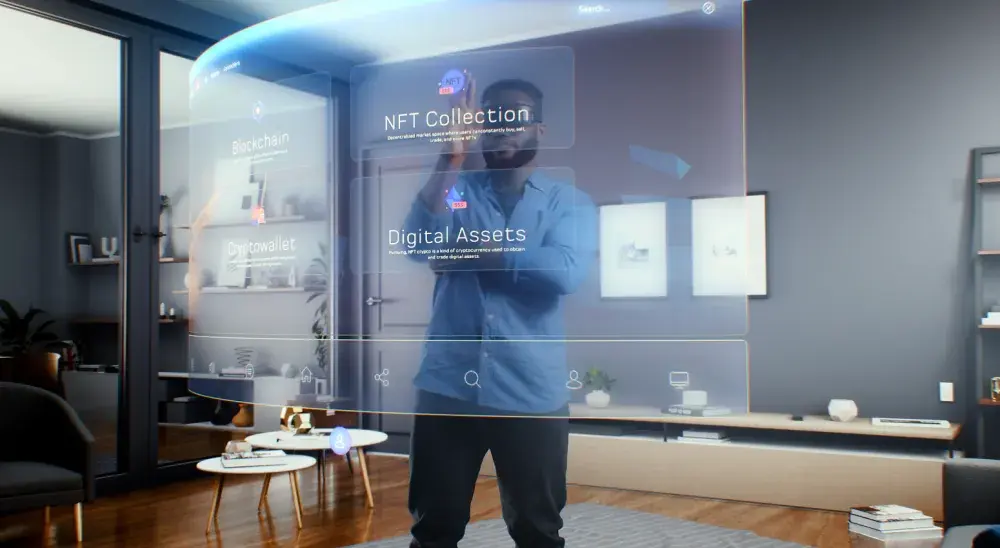
Smart contracts are self-executing contracts with the terms directly written into code. But how do they work, and do you have the same legal protections as with traditional contracts?
Ready to start your business? Plans start at $0 + filing fees.


by Belle Wong, J.D.
Belle Wong, is a freelance writer specializing in small business, personal finance, banking, and tech/SAAS. She .
Updated on: July 19, 2024 · 7 min read
With growing awareness of NFTs and cryptocurrencies, there's been a buzz in the business world around smart contracts. But the complex and technical nature of blockchain technologies can make a general understanding of smart contracts elusive for many small business owners. Here's what you need to know about smart contracts and their potential impact on your small business.

When you hear the word "contract," the first thing that likely springs to mind is the traditional legal contract. At the core of any legal contract is an agreement, and that's what smart contracts and standard contracts have in common.
But while a smart contract can be a legally binding agreement, it isn't necessarily always legally binding. A smart contract still has to meet all the legal requirements of a contract, such as intent to form a contract. And these legal requirements might also vary by jurisdiction.
A smart contract is essentially a software program stored on a blockchain. It fixes the terms and conditions of the agreement between the parties in its code and uses "if/when —, then —" logic statements for execution. For example, "when product A is delivered, then payment is made."
When these terms and conditions are met, the smart contract will run, and the agreement will be executed. Vlad Dzhidzhiyeshvili, CEO of Ventive, a digital transformation agency, describes the concept succinctly: "In a nutshell, the smart contract is a script that is executed on the blockchain, pre-programmed by a developer, with a very specific purpose."
So how do smart contracts work? "The smart contract is executed when all criteria are met," Dzhidzhiyeshvili explains. "For example, the purchase of an NFT might trigger royalty payments to the creator of the NFT. Or the confirmed delivery of goods might release funds to the distributor."
The key is that this execution occurs automatically when the specific criteria have been met, without the need for action by any third-party intermediaries. And because a smart contract is stored on a blockchain, once it's been executed, the blockchain itself is updated.
The result? The transaction is permanent and can no longer be changed. This is because a blockchain records the transaction in a block that is connected to those that occurred before it (i.e., previous transactions) and also to any components that might come after it (i.e., future transactions). The resulting blockchain is irreversible because no one can alter any of the existing blocks or insert a new block in between any two.
Smart contracts offer businesses several benefits when compared to traditional contracts, including:
But on the flip side, smart contracts have one major disadvantage: They cannot be changed. "There is next to no flexibility with smart contracts," notes attorney Isaac Marcushamer, co-founder of Miami-based DGIM Law. "They do not give much in the way of change, even as conditions change."
There are other disadvantages, as well. "The other disadvantages are much more complex," Dzhidzhiyeshvili says. "They include performance, user experience, and overall comprehension of the requirements. The developer also needs to understand both the legal intricacies of the contract and how to convert that into programming language."
From a technical perspective, smart contract enforcement is found in the blockchain itself. "Smart contracts are enforced by the blockchain they are coded onto," Dzhidzhiyeshvili explains. "The blockchain interprets the function and enforces the contract."
He gives the following example: "Let's say a country creates a government cryptocurrency. They might code a smart contract that automatically implements a 5% tax on every purchase made using that cryptocurrency. The smart contract handles this behind the scenes so that the 5% tax automatically goes directly to the country's treasury. This means merchants won't need to file their taxes as it's factored into those purchases automatically, allowing them to save on accounting costs."
There's also enforcement and regulation from the legal perspective. "Smart contracts are a type of contract, and therefore they're enforced like all contracts in state and federal court systems," Marcushamer says. "However, with smart contracts, it's unlikely that enforcement will be needed because they automatically execute."
But what happens if someone breaks a smart contract? Marcushamer notes, "Because smart contracts are a type of contract, from a legal perspective if they were to be broken, all remedies that are available for traditional contracts would be applicable."
Smart contracts offer businesses multiple benefits. But there are currently some significant obstacles to their widespread adoption.
Complexity is one of the biggest barriers to adoption. "There needs to be the know-how to actually code smart contracts and mint the tokens," Dzhidzhiyeshvili says. "Most small business owners simply don't have the time, team, or skill set to deploy smart contracts."
There are other obstacles, too. "To implement smart contracts, you need to have an underlying understanding of Web 3.0 and its philosophy," he says. "And Web 3.0 gives rise to user experience challenges. It's full of clunky designs that frustrate users. But in the end, understanding when to use a smart contract is the first step. And how to implement it in a way that makes sense for your business is the second step."
Yoav Susz, VP of Global Revenue at Contractbook and a former lawyer agrees. "We're still very much in the early adopter stage," he notes. "And there's definitely a degree of complexity involved. So I think for a lot of businesses, it's just not clear whether the effort is worth the benefits."
His advice for small business owners? "No business is going to go from traditional contracts to storing contracts on the blockchain overnight," he says. "You need to take things a step at a time. Start with understanding how contracts can make your business more efficient because of the data they contain. And take advantage of the companies out there that are already providing the tools and technologies that can help you each step of the way."
The obstacles to implementing smart contracts aside, how can small business owners put them to use in their businesses?
According to Susz, there's a wide range of small business use cases. "At the end of the day, a business is primarily a collection of contracts," he points out. "They're everywhere in your business, from employment agreements to sales agreements to all the other agreements you need to run a business. And these contracts contain a lot of data."
With traditional contracts, this data isn't easily accessible. The paperwork gets filed away, whether it's in a physical file cabinet or, if it's a digital contract, in a digital file cabinet.
Smart contracts make all this data accessible. "Whether it's payments or a certain date or a benchmark being reached, every contract outlines a set of obligations," Susz says. "Wouldn't it be great if all of those data points can automatically be added to your calendar? Or connected directly to your billing system?"
He gives this example: "Let's say you have an agreement to invoice a customer on three specific dates. With smart contracts, this can happen automatically, without the need for any manual work on your part."
Dzhidzhiyeshvili offers other examples of how small businesses can implement smart contracts. "A candy store owner might utilize smart contracts to track loyalty rewards. After 10 purchases, the 11th one is free," he notes. "Or a theater might sell movie tickets as NFTs to customers rather than printing tickets."
Dzhidzhiyeshvili advises small business owners who want to use smart contracts to meet with professionals who understand the technology and can provide solutions. He notes that these consultations typically range from free to a few thousand dollars. "But a big part of deploying smart contracts is the transaction fees, also known as gas fees," he warns. "So be prepared to do your research, as these fees can add up quickly and add considerable hidden costs to a project."
Ultimately, Susz sees the need for people to change their mindset around contracts. "Contracts, with all their data, can be empowering," he says. "They can give you a lot of insight into your business. I'd encourage business owners to really take ownership over their contracts, over how they create contracts, how they store them, and how they work with the information they contain. Because there's so much potential there."
Find out more about Managing Your BusinessThis article is for informational purposes. This content is not legal advice, it is the expression of the author and has not been evaluated by LegalZoom for accuracy or changes in the law.
You may also like
Has another party failed to live up to their contractual obligations? Find out if you need to send a breach of contract notice and how to prepare one.
November 24, 2023 · 4min read
Considering an LLC for your business? The application process isn't complicated, but to apply for an LLC, you'll have to do some homework first.
July 29, 2024 · 11min read
2024 is one of the best years ever to start an LLC, and you can create yours in only a few steps.
July 29, 2024 · 22min read